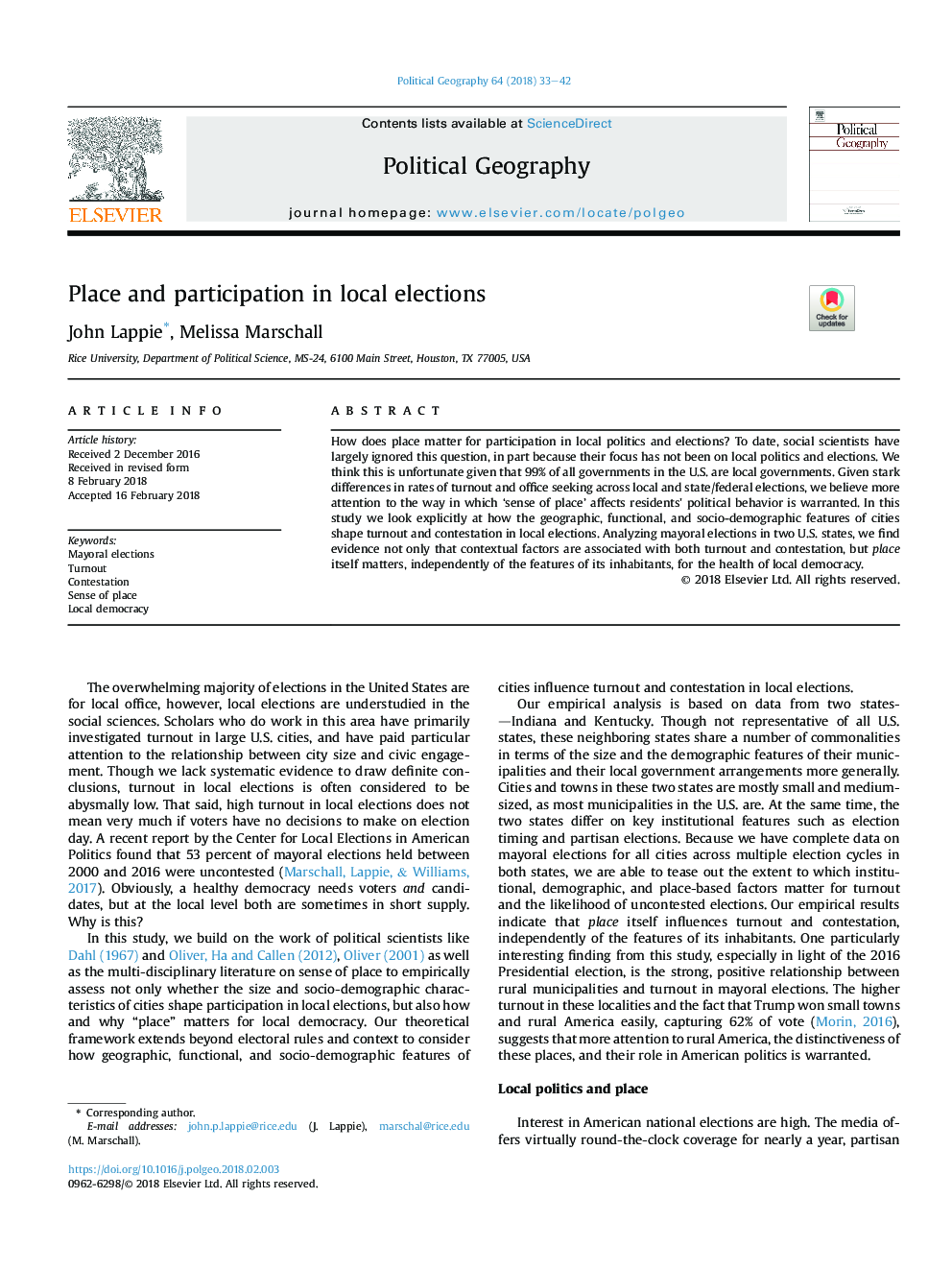| Article ID | Journal | Published Year | Pages | File Type |
|---|---|---|---|---|
| 7492642 | Political Geography | 2018 | 10 Pages |
Abstract
How does place matter for participation in local politics and elections? To date, social scientists have largely ignored this question, in part because their focus has not been on local politics and elections. We think this is unfortunate given that 99% of all governments in the U.S. are local governments. Given stark differences in rates of turnout and office seeking across local and state/federal elections, we believe more attention to the way in which 'sense of place' affects residents' political behavior is warranted. In this study we look explicitly at how the geographic, functional, and socio-demographic features of cities shape turnout and contestation in local elections. Analyzing mayoral elections in two U.S. states, we find evidence not only that contextual factors are associated with both turnout and contestation, but place itself matters, independently of the features of its inhabitants, for the health of local democracy.
Related Topics
Social Sciences and Humanities
Arts and Humanities
History
Authors
John Lappie, Melissa Marschall,
